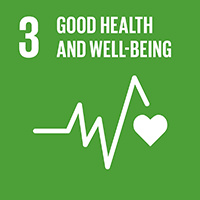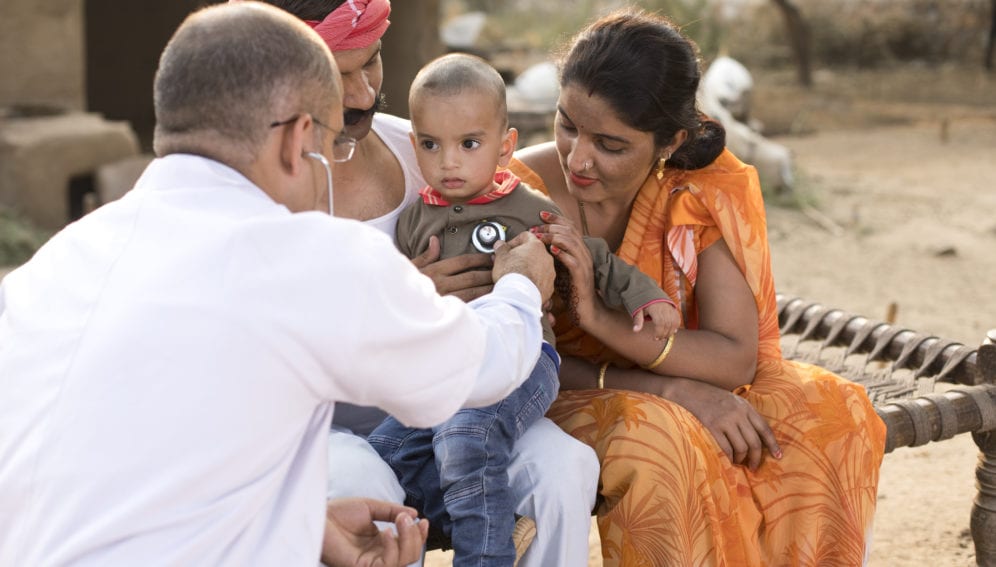Send to a friend
The details you provide on this page will not be used to send unsolicited email, and will not be sold to a 3rd party. See privacy policy.
In brief: Every year, more than 58,000 infants die of neonatal sepsis in India. Antibiotics are becoming less effective against the condition because of their overuse, including in agriculture. SciDev.Net published a story about the importance of maintaining the antibiotic colistin as a drug of last resort against neonatal sepsis, stimulating the debate that led to the ban of colistin in agriculture.
Why it matters: High levels of antibiotic overuse have made many drugs resistant. However, a handful of drugs restricted by the World Health Organization, including colistin, form a last line of defence for infants who develop neonatal sepsis.
The big picture: According to the World Health Organization, antibiotic resistance is one of the biggest threats to global health, food security and development today. Infections are becoming harder to treat as antibiotics become less effective.
By the numbers: Neonatal sepsis, a systemic infection in the first 28 days of life, is the third most common cause of death among infants less than four weeks old, accounting for 225,000 deaths globally every year.[1]
Background
In hospitals across India, babies are dying for lack of working antibiotics. Despite cleanliness and vigilance, drug-resistant microbes infect infants causing neonatal sepsis, a condition that kills over 58,000 babies every year.[2]
One relatively obsolete antibiotic, colistin, has been used successfully to prevent neonatal sepsis. In 2019, Dr Dinesh Raj, a paediatrician working at the Holy Family Hospital in New Delhi, explained: “Because of the resurgence of drug-resistant pathogens, it is being used as a drug of last resort.”
However, Dr Sumbul Warsi, medical director of the Holy Family Hospital believed that the “irrational and inappropriate” use of antibiotics, including misuse in agriculture, was contributing to “antibiotic resistance and rising instances of neonatal ”.
Given the liberal use of colistin in poultry farming, it was unclear how long the antibiotic could remain effective.
Already in 2017, the World Health Organization recommended that “farmers and the food industry stop using antibiotics routinely … in healthy animals”, listing colistin as one of the critically important antimicrobials for human medicine.
India’s Drugs Technical Advisory Board, part of the Ministry of Health and Family Welfare, also recommended that colistin and other antimicrobials not be used in agriculture but, as of early 2019, no formal ban had been adopted.
What action did SciDev.Net take?
SciDev.Net Regional Coordinator for Asia Pacific, Joel Adriano, had been following the growing crisis in antibiotic misuse and resistance in India. In mid-2019, he heard about the specific use of colistin to reduce infant mortality.
At the time, no other news outlets had covered colistin in detail. Adriano commissioned a comprehensive story from SciDev.Net journalist Ranjit Devraj; the story was escalated to SciDev.Net’s global desk.
Devraj reached out to contacts in the Indian Agricultural Research Institute (ICAR) and the Holy Family Hospital in New Delhi. He spoke to agricultural scientists and top medical experts and paediatricians to understand the potential benefit of colistin and the dangers in continuing to use it in agriculture.
On 5 July 2019, SciDev.Net published an in-depth news story under the title, The awful toll of superbugs in India’s hospitals. The article focused on interviews with paediatricians who had come face to face with colistin use in hospitals, rather than focusing on the research community, which other articles on antibiotic misuse had done up to this point.
SciDev.Net was the first and only outlet to cover the story with this angle. Major Indian news portals picked up and published SciDev.Net’s story; other outlets cited it.
What was the impact of SciDev.Net’s action?
On 22 July 2019, a little over two weeks after the SciDev.Net article was published, the Indian Ministry of Health and Family Welfare banned the use of colistin in agriculture. Specifically, it prohibited the manufacture, sale and distribution of colistin and its formulations for food-producing animals, poultry, aqua farming and animal feed supplements.
Devraj later learned from his contacts in ICAR that his article had played an important role in stimulating the debate that led to the ban, helping to raise awareness among key decision makers and policy makers about the importance of maintaining colistin as an antibiotic of last resort.
Sushil Kumar, IAS, Secretary, SC National Commission, former Secretary of ICAR and Additional Secretary, Ministry of Agriculture, said:
“The SciDev.Net story by Ranjit Devraj positively and proactively enhanced the debate on the use of the colistin for agricultural purposes. He held discussions with top agriculture scientists of Indian Council of Agriculture Research and senior officials handling policy planning matters in the Ministry. As a result of his passionate espousal of sustainable agriculture and related nationwide debate, colistin was banned for use in agriculture. This marks another success in highlighting important issues of public policy where Mr Devraj has actively contributed.”
- Neonatal sepsis accounts for 225,000 deaths globally every year.[3] Globally, of the three million annual neonatal sepsis cases (2,202/ 100,000 live births), India has the highest incidence of clinical sepsis (17,000/ 100,000 live births).[4] By safeguarding colistin as a drug of last resort, the lives of potentially hundreds of thousands of infants in India can be protected.
Relevant SDG:

References
[1] https://www.bmj.com/content/364/bmj.k5314
[2] It was estimated in a study in 2016 that resistant infections kill more than 58,000 babies in India every year, though the author of the research said this was a vast underestimate https://www.thebureauinvestigates.com/stories/2018-11-14/babies-hit-the-hardest-by-indias-antibiotic-resistance-crisis
[3] https://www.ncbi.nlm.nih.gov/pmc/articles/PMC6483350
[4] Fleischmann-Struzek C, Goldfarb DM, Schlattmann P, Schlapbach LJ, Reinhart K, Kissoon N. The global burden of paediatric and neonatal sepsis: a systematic review. Lancet Respir Med. 2018;6(3):223–230. 10.1016/S2213-2600(18)30063-8 https://www.ncbi.nlm.nih.gov/pmc/articles/PMC6483350/#pone.0215683.ref003


